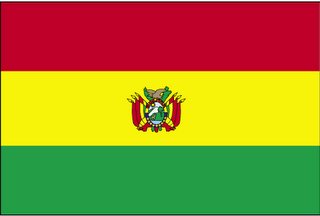Political Council to Decide Future of Constituent Assembly

LA PAZ, (digitalwarriormedia) – The fate of the Constituent Assembly is set to be decided on Monday during meetings in La Paz. Either the body will transfer its remaining plenary sessions to a new location and continue a political dialogue, or the Assembly will be decommissioned.
Monday’s meetings among heads of Bolivia’s political parties and the Political Council, will address issues that still lack agreement.
At the center of these areas without consensus is the issue of Bolivia’s capital. Disagreement over whether to keep the nation’s capital in La Paz or move it to Sucre in the Chuquisaca department has halted the Assembly’s progress since September 8.
According to government sources, the most recent position taken by the Inter-Agency Committee of Chuquisaca will not allow the Assembly to resume unless delegates consider the capital issue.
Last week, the Political Council - a group created specifically to accelerate the work of the Assembly - proposed to declare Sucre the historic, judicial and election capital of Bolivia but the proposal was rejected.
Instead, the Chuquisaca committee has demanded the immediate removal of the Legislature from La Paz to Sucre following approval of the new Constitution and the gradual relocation of the Executive branch to Sucre as well.
The capital issue forced the suspension of the Constituent Assembly for the past six weeks after violent attacks and sustained protests in Sucre during September. Radical sections from Chuquisaca and the eastern provinces threatened violence against members of the Assembly which led delegates to seek another location for the continuation of the plenary body.
There are implications that the Chuquisaca committee is working under the influence of opposition interests in the "crescent" departments of Santa Cruz, Beni, Pando, and Tarija, including Santa Cruz vice-minister, Carlos Dabdoub.
On Friday, Roberto Aguilar, governor of the Oruro Department and Constituent Assembly Vice President, handed a letter to the chairman of the Constituent Assembly, Silvia Lazarte. He indicated that the city of Oruro would welcome all members of the plenary body for future sessions. Similar offers have come from civic and political parties in Cochabamba and La Paz.
Once a new location is decided, the Assembly will be called into emergency sessions within 48 hours, as there is much work to accomplish before the body’s December 14 deadline.
National Unity (UN) delegate Angel Villacorta cited the unyielding position of the Chuquisaca committee as the main cause for the possible failure of the Assembly. He condemned those whose real aim is to derail the Assembly and thereby end the only way to achieve change in the country.
In a press conference on Friday, Vice-president Alvaro Garcia Linera, said the Political Council would define the Constituent Assembly’s future. Garcia, who has served as moderator of the Political Council, expressed regret that an uncompromising opposition could cause the Constituent Assembly to fail. He stated that these individuals would have to be responsible for such a result.
Labels: constituent assembly political council Sucre Chuquisaca crescent










